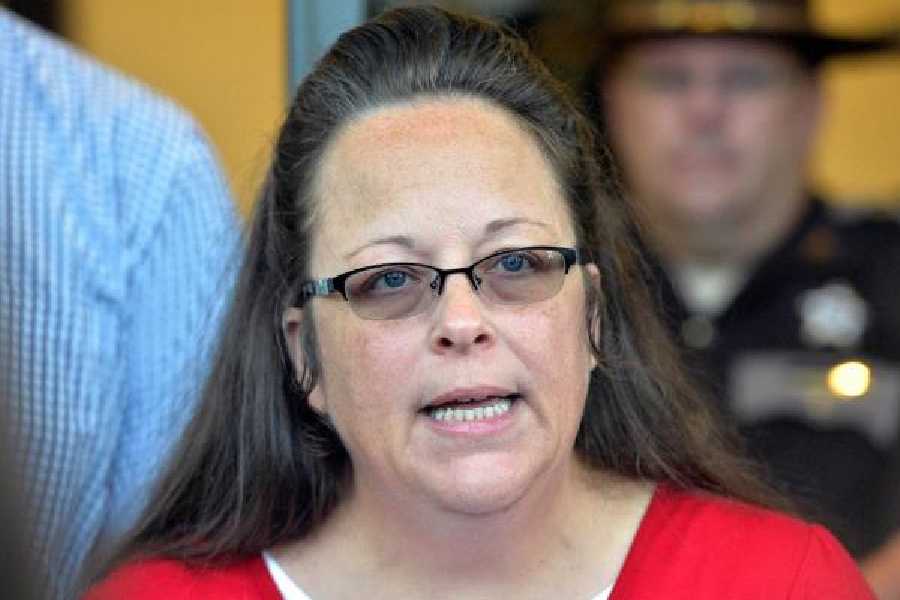Gay Americans celebrated a decade ago when the Supreme Court established a constitutional right to same-sex marriage in a landmark decision.
But the community was shaken several years later when the court’s conservative majority eliminated the constitutional right to abortion, showing its willingness to revisit longstanding precedent. Justice Clarence Thomas used a concurring opinion in the abortion case to urge reconsideration of Obergefell v. Hodges, the ruling that legalised gay marriage nationwide.
Those concerns have turned recently to near panic as the Trump administration has been targeting programmes and funding for the LGBTQ community, and prominent Democrats have warned that marriage rights for gay people may be at risk. Now, the justices are considering whether to hear a case that would ask them to overturn the 2015 decision, weighing the petition at their private conference on Friday.
It would take the votes of four justices to accept the case. If they decline to hear it, as many legal experts expect, they could announce the denial as soon as Monday. Were the justices to agree to hear the case, a major step, they would likely only do so after considering it in at least two consecutive conferences, the second of which would be on November 14.
The petition before the court was filed by Kim Davis, a former Kentucky county clerk who gained national prominence in 2015 when she defied a court order and refused to issue same-sex licences because of her religious beliefs. She has asked the Supreme Court to reverse an order requiring her to pay more than $300,000 to a couple denied a marriage licence and to overturn the landmark same-sex marriage ruling.
That has sparked alarm. Over the summer, Hillary Clinton, the former secretary of state and Democratic presidential nominee, predicted the Supreme Court “will do to gay marriage what it did to abortion”. She warned in an interview on the podcast Raging Moderates that fewer than half the states would recognise same-sex unions if the court revoked the nationwide right.
Many legal experts, including lawyers who fought for gay marriage, have counselled calm.
Mary Bonauto, who represented James Obergefell at the Supreme Court, said she understood the fear but believed marriage rights were on solid ground.
“I know everything is being thrown up in the air and feels unstable,” Bonauto said. But she noted that several justices had discussed the importance of maintaining precedents that people have relied on to order their lives in fundamental ways.
The court said in Obergefell that the Constitution guarantees a right to same-sex marriage, calling marriage a “keystone of our social order”. The plaintiffs in the case, the court said, were seeking “equal dignity in the eyes of the law”.
“You have a precedent here, which affects our whole society,” Bonauto said, noting that there are about 8,23,000 married same–sex couples in the US raising nearly 3,00,000 children. “This is something that people need to be able to count on.”
New York Times News Service










